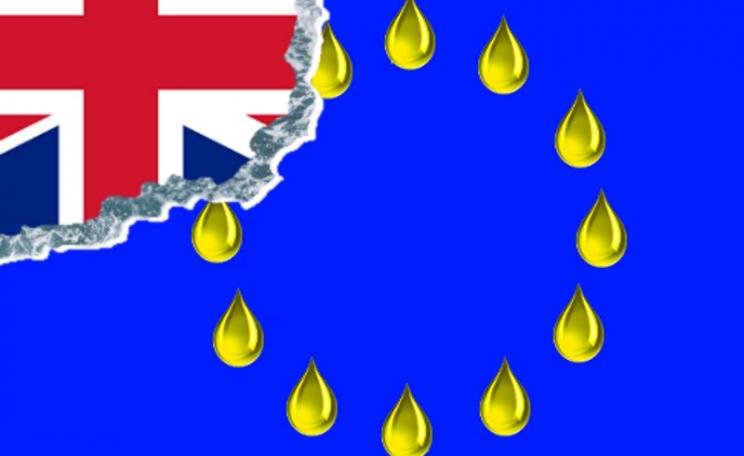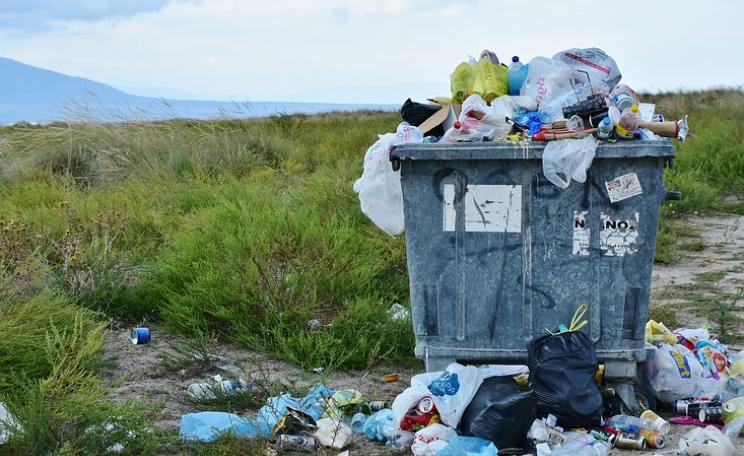The realpolitik says that filing the Article 50 notification is the last, not the first thing, you should do. The UK's only real negotiating edge comes from its ability to be as awkward as possible while a full, permanent member of the EU.
If a week is long time in politics, how long does that make three months? Answer: an archaeological epoch.
That is to say, the period that lies ahead until the Conservative Party Conference in Birmingham in early October opens up giant vistas of time - plenty long enough for everything to change, completely.
And in that time, anything could happen. In fact, one of those anythings already has happened. No, I'm not talking about the Brexit vote itself, but about David Cameron's response to it.
Before the referendum, he has promised that in the event of a Leave vote, he would instantly trigger the UK's withdrawal by filing the Article 50 notification that sets off an irrevocable process concluding in the nullification of all EU treaties after no more than two years.
But then, Cameron did no such thing. He left that act to his successor - who would only take office at the Tory Party conference in October. Or possibly, it is now being mooted, in November. After all, surely the candidates should present themselves to the conference, giving members another month in which to ponder, and vote?
And then what's the rush to file the Article 50 notification even then? None whatsoever, leadership favorite Boris Johnson is indicating. Let the EU stew! We will do it in our own time.
And then what if the new leader calls a general election (or indeed We The People demand one!)? That's unlikely to take place until, say, March. Or April. Or even May. And we must surely await the outcome of the election before before filing the momentous Article 50 notification?
An extraordinary reversal
So what is really going on here? In my opinion, two things:
1. Over three months, or six months, public opinion is likely to change completely. The narrow but decisive majority in favour of Brexit that emerged in the referendum may have totally evaporated by then. It already appears to be shrinking away as the real economic implications sink in. Cameron knew this might very probably happen and, as a determined Remainer, has left the door firmly open to a reversal of the Brexit decision.
2. For the Leavers, it's essential to secure the best possible deal from the EU. But the realpolitik says that filing the Article 50 notification is the last, not the first thing, you should do. The UK's only real negotiating edge comes from its ability to be as awkward as possible while a full, permanent member of the EU. The moment it's filed, they know we are out after two years no matter what. They (EU officials and other member states) can refuse to concede anything in the 'formal negotiations' triggered by Article 50, and after two years we are unceremoniously ejected with no come back.
So what this means, in the realpolitik, is that the negotiations start now - as in fact they already have, with EU officials and grandees, Germany's Angela Merkel and our Boris all setting out their various positions. Only once these 'shadow negotiations' are complete and a deal is tied up can the UK actually file its Article 50 notification - and at that point it's just over the lawyers to write down what has been agreed, and formal votes to follow in the EU Parliament and Council.
The realpolitik says that filing the Article 50 notification is the last, not the first thing, you should do. The UK's only real negotiating edge comes from its ability to be as awkward as possible while a full, permanent member of the EU.
So in fact, it's likely to be a very long time before any Article 50 Notice is signed - if indeed it ever will be.
But surely the UK has to leave? The People have spoken!
Up to a point, Lord Copper. First, it looks increasingly likely that there will be a general election before any final decision is made. If one (or more) of the parties stand on a 'Remain' manifesto pledge and get(s) elected into government, then the referendum result is trumped. And that's something that could well happen.
But even without that, the government may in the future decide to hold a second referendum (as today urged by Lord Heseltine, backed by almost 4 million citizens) to allow the electorate to vote on the deal that has been negotiated (pre-Article 50, mediated by Angela Merkel), and all the other consequences of a Brexit that have been emerging. These are likely to include:
- no £350 million a week dividend for the NHS, or for anything else;
- slower economic recovery in the UK, fewer jobs, reduced pensions, and higher taxes;
- higher prices for fuel and other imports, and more expensive foreign holidays;
- a second independence referendum in Scotland, which the SNP would win;
- a 'border poll' in Ireland that could see Northern Ireland quit the UK and the Emerald Isle re-united in brotherly love;
- being stuck with all that 'EU red tape' we love to hate so much as a price of being in the single market - but with no power over it in the EU Council, Parliament or Commission;
- no reduction in immigration - again, the single market would force us to keep our borders open, with maybe a symbolic exemption for violent criminals;
- the certain knowledge that if we were to leave and re-join, it would take a long time and we would get a far worse deal than we have now - no rebate, no opt-outs and forcible entry into eurozone and Schengen.
And how many people would vote for that? OK, a few die-hard UKIPpers, but never enough people to win a majority. So there can be little doubt that the now inevitable delays will play into the hands of the Remainers.
Yes, all the talk now is of respecting the verdict of the people and all that. And so it will remain for some time to come. But with the strong shift in public sentiment that is already under way, and set to grow, it won't last out a run of strong Remain opinion polls.
A best-case scenario?
Of course this may not end well for the UK, Europe and the environment. But it could. If Jeremy Corbyn survives the leadership putsch now under way from the Blairite rump of MPs in the Parliamentary Labour Party, he would be in a position to fight a putative general election on a powerful, progressive pro-EU platform.
This would be based on his vision of a social EU - an EU of the people, not the corporations; and a pro-environment EU, taking a lead on global warming, accelerating the transition to renewable energy economy, ramping up enforcement of environment laws, moving ahead with the creation of a 'circular economy', and clamping down on toxic agrochemicals.
And of course ditching TTIP, CETA, TISA and all the rotten medley of 'free trade' deals that hand over vast antidemocratic powers to global corporations and financiers.
That's an election he could win, and go on to build the fairer, cleaner, greener, more inclusive Britain we so desperately need.
Oliver Tickell is Contributing Editor at The Ecologist.







